Feature & Comment
Petition from lawyers for judicial reform
A group of Maldivian lawyers outlined serious concerns with the independence and functioning of the judiciary in a petition calling for wide-ranging reforms.
Published
7 years agoon
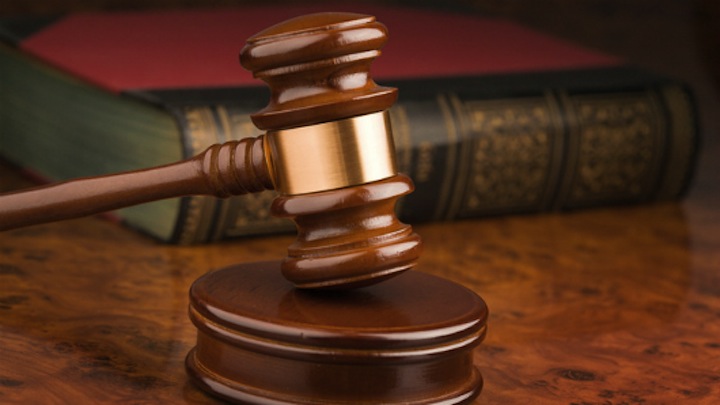
The following is a translation by Sheena Mohamed of a petition signed by 56 lawyers outlining serious concerns with the Maldivian judiciary.
We, lawyers, are signing this petition because we are concerned about the situation of justice in
the Maldives. We, therefore, call upon the relevant state authorities to address the concerns
outlined herein.
A majority of the Maldivian citizens are of the belief that since the time the 2008 Constitution came into force, the courts have hesitated to defend the Constitution, have imposed sanctions beyond the mandate granted to the courts under the Constitution, taken a step away from justice by succumbing to political interest in place of the law and thereby acting in a manner that contradicts with the Constitution.
These matters cannot be justified. The Courts and the Judicial Service Commission have taken no initiative to defend judges against the allegations of corruption against them made by the public. There has been no internal change within the judiciary to build up the confidence of the public in the judiciary. Nothing has been done about unjustified procedures imposed by certain judges in conducting trials. Such matters are encouraging people in an adverse manner.
The dignity of the courts cannot be protected by issuing threatening press releases against those who criticise the functioning of the courts. The dignity of the courts will be protected, and the public will start believing and respecting the courts, when there is a change in the conduct of the judges and the manner in which trials are carried out and also by showing it to the public from their conduct that they have refrained themselves from the political influences and the social evil of corruption. The judges must show it from both their words and actions that more than the need to remain in their posts, the priority should be given in abiding by the rules and adhering to them.
Conducting trials
1. In order to arrive at a just and impartial decision, the main condition should be that
they arrived at the decision upon proper application of procedures according to the
written laws. Accordingly, for the procedures of the trial should be applied in an equal
and transparent manner, in an open trial as provided for in the Constitution. And to grant
the defendant adequate opportunity and the facilities to defend himself of the charges
against him. It is equally important for trials to be conducted without inequality and
without any exceptions, by applying the same rules and regulation, without any
discrimination or special treatment for certain people.
The closed trial proceedings in some cases in the past four years were not justified by law or
the constitution. They were, however, merely based on the fact that the defendant in the
cases were political figures or of a high-profile nature.
By conducting the trials against political figures expeditiously, withholding the applicable
procedures, and by conducting trials during the day and night, only for the verdict to be
delivered at midnight, clearly contradicts Articles 43, 51, 17 and 21 of the Constitution. The
trials of political figures shall be conducted by applying the same rules and procedures and at the same speed as that in the case of the common man. Expediting the trials of
political figures at the expense of the common man’s trial and prolonging his trial is a
violation of the Constitution. Hence, the cases of President [Mohamed] Nasheed, Colonel [Mohamed] Nazim,
Sheikh Imran [Abdulla], Ahmed Adeeb, Muhthaz Mushin, Gasim Ibrahim, and other
parliamentarians, where the trials were conducted at a fast pace with the courts working
day in and night, and for the judgments to be passed during midnight, cannot be accepted by
any means.
Charges of terrorism
2. Terrorism against political figures in the past years was proven despite being clearly
beyond the ambit of Terrorism Act and is suspected of being influenced with political
considerations and pressure. This is supported by the deliberation that were rushed through on
the cases with misapplication/ denial of procedures, where the hearings were conducted
throughout the day including the nights, for the verdict to be granted at midnight.
Nothing was done at the initiative of the judiciary to rectify such procedurally undesirable
results. The result of this has led public to view the judiciary and their trials as equivalent
to a circus.
Baseless remand hearings
3. The remand hearings of detainees are being conducted as closed hearings contrary to
Article 42 of the Constitution. The remanding of political figures is mostly based on the
reliance on an intelligence report. Acceptance of the police intel report as evidence has resulted
in it being treated as a weapon to detain political figures. While it is contrary to Article 49
of the Constitution and thereby a violation of the Constitution to remand a person in the
absence of any of the four instances stipulated in Article 49 of the Constitution or any
supporting evidence, merely for purposes of obtaining evidence, the judiciary has
refrained from taking any action to resolve and prevent this.
Judgements in absentia
4. Despite the protection guaranteed for all citizens in Article 51 of the Constitution to not
have judgments passed in the absence of the defendant, a judgement was issued in the
past week against a political figure at midnight while he was hospitalised after he
collapsed in court earlier that day. The judge could not even wait till sunrise the next
morning.
Testimonies of anonymous witnesses
5. It is believed that the trials of the political figures are conducted taking into account the
testimonies of anonymous witnesses in contradiction to the law. The judiciary has not
taken any action to rectify this so as to ensure the proper application of the procedures
stipulated in Article 42 of the Constitution in a transparent manner.
Conduct of the Judges
6. Some of the Judges are viewed as lacking the discipline to serve in the post. Some of them
are neither punctual nor are respectful towards the parties in the cases. In this regard, both
the judiciary and the Judicial Service Commission has failed to take any action to ensure
the maintenance of discipline of the judges in a manner to leave no room for complaints
arising out of the allegations of succumbing to political pressure. The judiciary has taken
no action to change the perception of the prevailing corruption amongst the judges despite
countless rumors of the practice of accepting bribes by Judges. The only action they
appeared to be taking is against the lawyers.
Undeserved penalising of the judges and security of the post
7. The Judges are being subjected to various pressure with the aim of threatening and
influencing their work. Among these include the transfer of Judges from one court to
another without their consent and without an opportunity for justification, indefinite
suspensions, removal of well educated and competent persons from the post, and
replacement or appointment of persons whose conduct and characteristics are
questionable for the post of a Judge. There have been instances where members of the
Judicial Service Commission have directly contacted certain judges and led them to have
uncertainties and fear about the permanency of their post.
Governance of the lawyers by the Supreme Court
8. The Attorney General’s office had been the governing body for the affairs of the lawyers
as the guardian of the lawyers. But the Supreme Court at its own initiative took over the
responsibility to govern the affairs of the lawyers. It is noted that as a result, there has
been a prolonged delay for recent graduates without getting their practicing licenses and
there has been a direct influence and uncertainty created by the Supreme Court to the
works of the lawyer. This is something that is very concerning for the lawyers. It is also
noted that the lawyers who are worthy of disciplinary action are not being subjected to
any. Instead, we witness action being taken against those lawyers who speak of injustice
upon failing to obtain justice. There is no institution who represents the lawyers and
works for the rights of the lawyers. Nor is there an entity that works towards the
professional developments of the lawyers.
The Supreme Court overriding their jurisdiction contrary to the Constitution
9. Article 145 (c) of the Constitution proscribes the decision of the Supreme Court as the
highest authority in the interpretation of the Constitution the laws and in cases heard by
the judiciary. The authority granted to the Supreme Court under this provision is not
limitless power to govern every single affair in the Maldives. Judges are supposed to be independent and act impartial. And it is clear from Article 142 of the Constitution that
Judges are required to act in accordance with the Constitution and all other laws. While
the Constitution also stipulates that the Maldivian State is based on 3 separate powers, it
is the People’s Majlis who has the authority to enact legislation. However, the Supreme Court has penetrated the authority of the People’s Majlis in relation to various issues and
have been enacting laws in the name of policies, rules, circulars and declarations.
One judge influencing the work of another
10. Each and every Judge is a free and independent person. Individual Judges should not
influence the work of another. And in the same manner, one Court should not influence
the work of the other. Nevertheless, the reality is rather different from this. Some higher
courts have access to files of certain cases that are being heard in another court. And it is
noted that the freedom of the Judges in lower courts have been constrained.
Rights of the detained
11. Article 51 (a) of the Constitution stipulates that a person has the right to be deemed
innocent until proven guilty of an offence beyond reasonable doubt in a court of law.
Regardless of this, Court have refrained from taking any action to rectify the cases of
various detainees being denied of the basic rights guaranteed under the Constitution and
the laws.
Penalising lawyers without notifying the cause for action
12. The right to be subjected to administrative action in a fair and just manner is a basic right
guaranteed under Article 43 of the Constitution. The Constitution also guarantees the
right to submit a case where it is believed that one’s rights have been affected due to the
administrative action so taken. In spite of this, when the Supreme Court suspends or
terminates the lawyers license, the lawyers are not given an opportunity to provide any
justification. On top of this, they are deprived of the opportunity to appeal against the
administrative action to a court.
Unmethodical functioning of JSC
13. It is believed that the functioning of Judicial Service Commission (JSC) has been organized
in a manner that will enable or encourage the spread of political influence. The Supreme
Court getting into the affairs of penalizing Judges and overriding the existing procedures
established for this within the JSC should not be tolerated. The issue of limited number of
Judges in the High Court has prolonged without a solution. The High Court branch in the
North of Maldives has not entertained any cases due to one of their Judges being in Malé
for the past six months. There is no guarantee as to the Courts in which the Judges work.
Thus, while there are Judges to fill in the Drug Court and the Juvenile Court, there are
only few matters that are seated in these courts. The transfer of Judges between Courts is done regardless of any vacancy or need and without the consent of the Judges. In fact,
majority of the magistrates in the islands are not familiar with the Penal Code and the
Criminal Procedure Code.
The role and responsibilities of the Attorney General and the Prosecutor General
14. It is believed that the roles of the Attorney General and the Prosecutor General to uphold
the governance of the law and to guarantee the basic rights of the people thereby enabling
public freedom, is not being carried out as required under the Constitution and the
relevant laws. Neither of these bodies have taken any action in defending the
Constitution. The Prosecutor General does not appear to have any system or criteria in
prosecuting people. It is believed that instead of looking at the available evidence in the
prosecution, the Prosecutor General prosecutes people under political influence or
pressure.
As such, we call upon the respective State authorities to provide solutions for the above outlined
concerns.
Related Posts
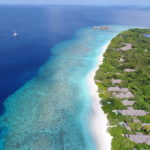 It’s not only political prisoners who need a fair judiciary – businesses need it too
It’s not only political prisoners who need a fair judiciary – businesses need it too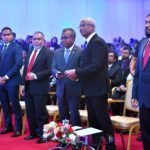 Chief Justice slams MDP’s proposals for judicial reform
Chief Justice slams MDP’s proposals for judicial reform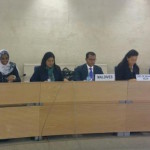 Maldives accepts UPR recommendations on judicial reform
Maldives accepts UPR recommendations on judicial reform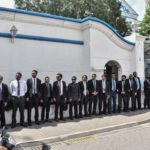 54 lawyers suspended over ‘unlawful’ judicial reform petition
54 lawyers suspended over ‘unlawful’ judicial reform petition Supreme Court urged to lift mass suspension of lawyers
Supreme Court urged to lift mass suspension of lawyers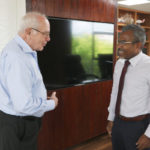 Retired South African judge assisting with judicial reform
Retired South African judge assisting with judicial reform
You may like
-


Maldives Independent suspends operations
-


EPA rejects Maafaru runway expansion project
-


Infrastructure development pushing islands to ‘tipping point’
-


Military alert level raised as ‘precautionary measure’
-


Taxi driver was fatally stabbed during robbery
-
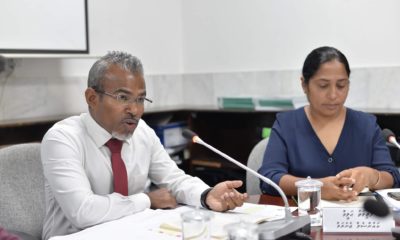

Arbitration case filed in Singapore over Fushidhiggaru lagoon

Maldives Independent suspends operations

Iyaz on Female Circumcision

EPA rejects Maafaru runway expansion project

Infrastructure development pushing islands to ‘tipping point’


